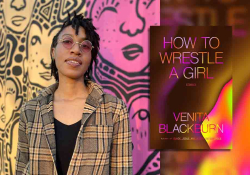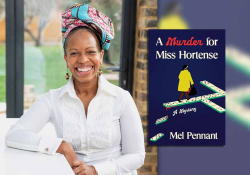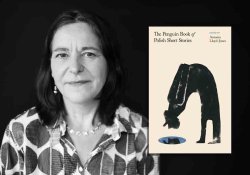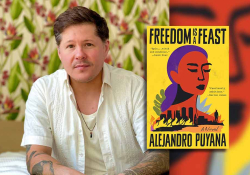Rom-Coms, the Fictional NBA, and Missing Missy Elliott: A Conversation with Shea Serrano
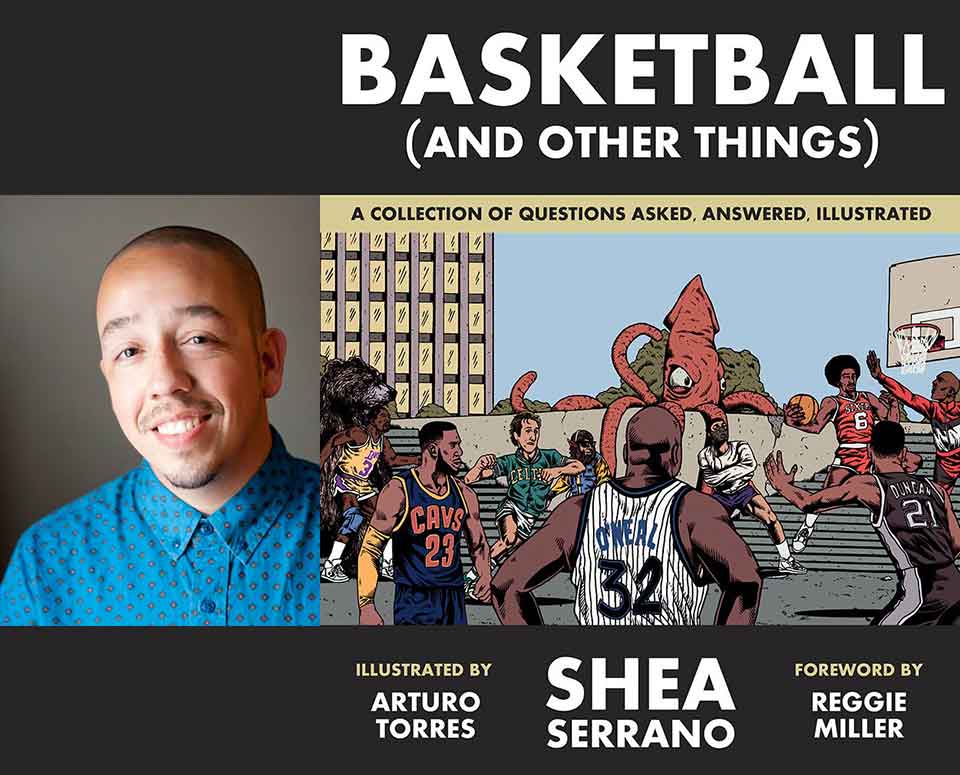 Photo (left) by Larami Serrano
Photo (left) by Larami SerranoShea Serrano’s path to the best-seller list was far from ordinary and, in the most literal sense, homegrown. Originally a middle-school science teacher, one day in 2008 Shea had to begin looking for ways to make quick extra dollars from home to cover his wife’s medical expenses. He did what any gutsy San Antonio kid would do: began calling up newspapers and telling them he was a writer. After several freelance pieces, he started working his way up the ranks of Houston-area papers, covering whatever would pay. It was through his reporting on the local rap scene that he met Bun B, rap giant and the eventual co-author of his first published work, The Rap Coloring Book. Not long after that came The Rap Yearbook (2015) and Basketball (And Other Things) (2017), both New York Times best-sellers illustrated by Arturo Torres, published by Abrams Books, and hyped by his incredibly loyal and notoriously good-hearted army of Twitter followers. Here he talks about those books, how to get the online world to read, and rap lyrics as social commentary.
Stack-Nelson: You often say on twitter that you only read your own books, but none of us can avoid reading anything, even if it’s just billboard ads. How would you say your unique writing style and voice developed; who did you read and what do you consider your influences?
Serrano: There are a bunch of people who I try to steal stuff from. There’s a guy named Kris Ex, for example, he writes about rap. He writes in this way that’s very graceful, and it’s never, what’s the word, erudite? It’s always a very beautifully done thing. He writes in a way that I can’t write, so I’m always trying to rip his stuff off. There’s a woman named Jia Tolentino who works at the New Yorker, and she writes in a very similar way where, for me, when I write a thing, I like to be very direct, “Here’s what I’m writing, here’s why I’m writing it, these are the things I need you to know when I’m done,” but other writers who don’t do that, like Jia, Kris Ex, Sean Fennessy, Kara Brown, these are writers who can write a thing, and by the time you get to the end of it, you know what they want you to know, but they didn’t have to beat you over the head with it. So writers who do that sort of stuff, writers who do a thing that I can’t do, those are the ones who are the most influential to me, because those are the ones who are trying to force me to do something that I can’t just do naturally.
Stack-Nelson: They lead you there rather than telling you where they need you to go.
Writers who do a thing that I can’t do, those are the ones who are the most influential to me, because those are the ones who are trying to force me to do something that I can’t just do naturally.
Serrano: Yeah, exactly, like you’ve got two types of teachers: when I was teaching I was very much like, “Okay children, this is what you need to know by the end of today.” Then there are other teachers who don’t say that, but at the end of the day you still know it. I always wanted to be one of those kind of teachers, but I never was; same way with writing.
Stack-Nelson: So you’ve also said you “do really well in the demographic of people who don’t usually read books.” You’ve mentioned some writers that you really admire, but do you have some other specific columns or books that you might recommend to people who don’t really read?
Serrano: I think that all depends on the stuff you like. Whatever you like, there’s a book out there for it that’s well done; there’s a website out there for it. For example, I really like nonfiction books. It doesn’t have to be sports, but something like . . . The Lost City of Z. Did you ever read that book by any chance?
Stack-Nelson: Yeah, I did, actually.
Serrano: Okay, so a book like that, that I was just like, “Oh you know what, I really like survival movies, I really like stories about people going into a jungle or whatever, I wonder if there’s a book about that.” And then I found out about that book, and it was one of the best books I ever read. And I don’t know if it’s a truly great book or if I really loved it because it was about a thing I liked. It’s very easy to walk into a bookstore and be intimidated because you don’t know what 99% of the books are, but there will be a book in there for a thing you like. I read a book by Erin Carlson recently that was about romantic comedies, which I really, really like. I went into a bookstore to get a book about romantic comedies, and I found that one. I had never heard of it before, I had never heard of her before, but I found it, and I read it and it was great! It was so much fun to read because I really like Nora Ephron movies. There’s a book out there for whatever you want to read, just go get that one, and read it. You don’t gotta read, fuckin’, every book; just pick one you like.
Stack-Nelson: One of the things that makes your books so readable and enticing is their unique format. What made you want to go with an illustrated presentation for your books, rather than text-only or photos? Why have Arturo Torres illustrate rather than doing it yourself (your first project being The Rap Coloring Book)?
Serrano: Well, I have Arturo do it because he’s a much better illustrator than I am. [laughs] But when I had him do the first book it was totally by accident. I was supposed to have illustrated The Rap Year Book, and I just procrastinated too long on getting started, and I realized I wasn’t going to have enough time to do both the illustrations and the writing. So I had to find a person and then I found him. But yeah, he’s way better than I am; that’s why I use him. And the reason I like illustrations in the book is because a bunch of the stuff that I’m writing is stuff where you can’t find a picture for it. If I’m writing about, whatever, a fictional basketball draft, there’s no picture on the Internet of Teen Wolf at the NBA draft—you know what I’m sayin’? So it just makes it a better reading experience, if you see a picture you go, “Oh, ok, this is what he has in his head.” It just feels cool.
Stack-Nelson: Yeah, I mean I would kill for the real-life picture of Drake doing pottery, but I don’t think that’s forthcoming, so.
Serrano: Yeah, exactly, exactly.
You can just pick these points where people represent things, where they were doing new things . . . and it’s going to be very aggressive and raunchy, but it also represents a shift in the music itself.
Stack-Nelson: Is there anything you would change about your books posthumously, so to speak? Is there a runner-up question you wish you’d included in Basketball (And Other Things), one you wish you’d answered differently, a song in The Rap Year Book you think should have been different?
Serrano: For the basketball book there were a bunch of them that we didn’t have space for, but all the ones we settled on were the ones I thought were the best ones. As far as The Rap Year Book, yeah, there are twenty-five songs that I would like to change, either because I haven’t written about them and I would like to or because you could make strong arguments for other songs as well. That was probably the toughest part about writing that book, was settling on the songs. Like I would have really liked to have written about “The Rain” by Missy Elliott. You know, Missy’s one of my favorite rappers of all time, and I was trying to figure out a way to write about that song, and I couldn’t. I was trying to figure out a way to write about the song “Ha” by Juvenile, and I couldn’t. And I was trying to find a way to write about “Make ’Em Say Uhh!” by Master P and all of these Southern rap songs (I mean Missy’s not Southern, but the other two guys are; they were very popular in the South), and I couldn’t.
Stack-Nelson: Yeah, I was a little disappointed; I was hoping to read some of your Missy Elliott takes.
Serrano: Yeah, honestly, I don’t plan on doing another edition or an updated edition, but if we did, I would probably kick somebody out of the book and replace them with her.
Just pick a thing, and study it, and be respectful of the history and it’ll work out okay
Stack-Nelson: Do a Runners Up to The Rap Year Book?
Serrano: Nah, I wouldn’t even do a runners up. I would be like, “I got this one wrong in the first book. It was actually this one.” I don’t think there’s anything wrong with saying you did a wrong thing, so I would just do that.
Stack-Nelson: So on the subject of lyricism in rap, when you write about songs in The Rap Year Book, you write very holistically about them, but there’s been a lot of talk lately around the concept of lyrics as poetry and literature. So I was wondering what your take was on who are some of the best lyricists, and what’s your take on lyrics as poetry. Are they inextricable from music or do they exist in their own sphere?
Serrano: As far as the best guys or the best women, you probably want to look at Rakim who was really the first guy who was writing in this very intricate way, he would be a good start. Of course, you have Tupac, who was very impassioned and passionate. Queen Latifah, her early stuff was really just powerful; that was her whole thing. Any of the political groups, NWA or Public Enemy. You can just pick these points where people represent things, where they were doing new things—like Lil’ Kim—and it’s going to be very aggressive and raunchy, but it also represents a shift in the music itself.
There’s never a situation where somebody can tell you, “You’re doing it wrong,” because all of this stuff is so subjective. Just pick a thing, and study it, and be respectful of the history and it’ll work out okay. And if it doesn’t then you just go, “Oh, my bad, I tried,” and someone will tell you what you did wrong, and you’ll just have to keep that in mind going forward.
Stack-Nelson: Well, that’s about all I’ve got for serious questions. Thank you so much for talking to me. One thing I do want to ask for myself: I don’t know shit about basketball. Everything I know I’ve pretty much learned from reading your stuff, but uh, I’m from Minnesota. Do you have any hockey takes I could take to the bank?
Serrano: [laughs] San Antonio used to have a minor league hockey team called the San Antonio Iguanas, and I went to a hockey game one time on a date with a girl and it was a disaster. So that was my only hockey experience. It wasn’t that great.




